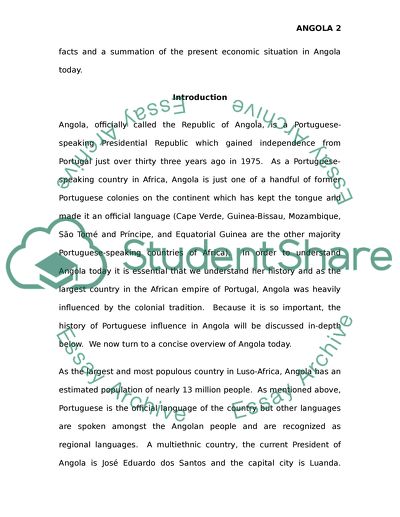Cite this document
(Destruction of a Nation: Angola Assignment Example | Topics and Well Written Essays - 1250 words, n.d.)
Destruction of a Nation: Angola Assignment Example | Topics and Well Written Essays - 1250 words. Retrieved from https://studentshare.org/sociology/1549014-republic-of-angola
Destruction of a Nation: Angola Assignment Example | Topics and Well Written Essays - 1250 words. Retrieved from https://studentshare.org/sociology/1549014-republic-of-angola
(Destruction of a Nation: Angola Assignment Example | Topics and Well Written Essays - 1250 Words)
Destruction of a Nation: Angola Assignment Example | Topics and Well Written Essays - 1250 Words. https://studentshare.org/sociology/1549014-republic-of-angola.
Destruction of a Nation: Angola Assignment Example | Topics and Well Written Essays - 1250 Words. https://studentshare.org/sociology/1549014-republic-of-angola.
“Destruction of a Nation: Angola Assignment Example | Topics and Well Written Essays - 1250 Words”, n.d. https://studentshare.org/sociology/1549014-republic-of-angola.


